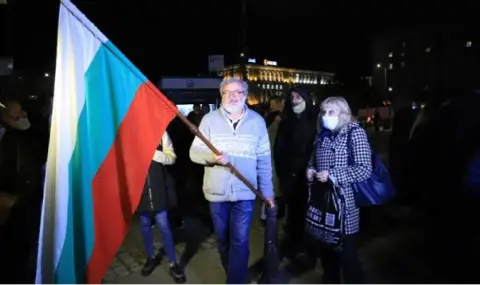Could Petyo Euroto have been an intermediary and influenced magistrates, ensured their election, without having political patrons in the Borisov-Peevski model at the highest level? By Daniel Smilov.
For several years of "investigation" of the case with Petyo Euroto (and with the Notary) the Bulgarian institutions have not reached a single specific name of a magistrate from their network: either the one being blackmailed or the one blackmailing. From time to time, information about connections leaks out – even of Acting Prosecutor General Sarafov, photographed with Euroto – but nothing has come of it. With the case of the European Prosecutor Teodora Georgieva, it is now abundantly clear how Euroto has blackmailed and continues to blackmail dependent magistrates who have taken advantage of his services. It is also clear that his digital banks with compromising material have been at least partially revealed and are in the hands of the investigative bodies and the prosecutor's office. But everything stops there and the impression is that there is an organized effort to ensure that nothing more is revealed.
Euroto and the Notary (who is now deceased) are not possible as intermediaries without political backing and protection, however. Moreover, in order to realize their mediation, they must influence not only magistrates, but also politicians who have control over political decisions. The connection between Petyo Euroto and certain Bulgarian politicians is also clear. He was the head of investigator Delyan Peevski, and also intervened at least twice in key investigations related to this politician (one of which is of particular importance - the bankruptcy of Corpbank). Boyko Borisov, of course, does not know Petyo Euroto, but this character became rampant during Borisov's administration, in which political decisions were largely made by him.
Would the Euroto have been possible without "Borisov-Peevski"?
So the question is, could Petyo Euroto have been an intermediary and influenced magistrates, ensured their election, without having political patrons in the Borisov-Peevski model at the highest level? The investigative bodies in the country do not ask themselves this question and do not look for "patrons" in the politics of the Euro-members, which is problematic in itself.
Here is how things stand in the case of the election of Teodora Georgieva as European Prosecutor, for example. She does not even deny that she met with the Euro and the final result of the meeting is the one that the Euro promised - she is proposed as the only Bulgarian candidate, because the others give up. Here is the chain of events:
A commission of experts evaluates the candidates for Bulgarian European Prosecutor. Among the commission are truly authoritative names. This committee must select and rank three candidates to propose for final approval to the Council of Ministers;
Theodora Georgieva is ranked by the committee among the three, although not in first place;
The Council of Ministers (Borisov 3) approves the candidates;
The remaining two candidates withdraw;
One takes a senior position in the prosecution service, and the other becomes a delegated European prosecutor;
The EU Council of Ministers appoints Teodora Georgieva as Bulgarian European Prosecutor by choosing one of the candidates.
To successfully implement his scheme, Petyo Euroto must have influence or actually act on behalf of two entities: the government and the Supreme Judicial Council. The appointment of a European Prosecutor is actually a political procedure – the approval is ultimately from the government. The very fact that Teodora Georgieva reaches the EU Council as a proposal is due to the Bulgarian government.
But what is even more interesting is that Euroto manages to convince the other two candidates to give up by arranging them for senior positions in the magistracy. This again means some political influence, but also connections with the Supreme Judicial Council. Without a decision by the Supreme Judicial Council, the other two candidates cannot be "compensated".
This analysis shows that Euroto cannot act without some connections at the government and Supreme Judicial Council level. What they are, through whom exactly and how they were implemented is a matter of investigation, which, however, is not being conducted and does not seem to be going to be conducted.
The "Borisov-Peevski" model is being restored
The political responsibility for the emergence and prosperity of intermediaries like Euroto is clear, however – they are an essential part of the "Borisov-Peevski" model that was imposed over the years in Bulgaria.
The bad thing is that this model of governance is currently being restored almost in its original form and its political patrons seem to have no intention of correcting themselves. Moreover, the scandal with Teodora Georgieva seems to demonstrate that at least one of them is ready to "fight" with the European Prosecutor's Office when his interests are affected.
***
This comment expresses the personal opinion of the author and may not coincide with the positions of the Bulgarian editorial office and the State Gazette as a whole.
